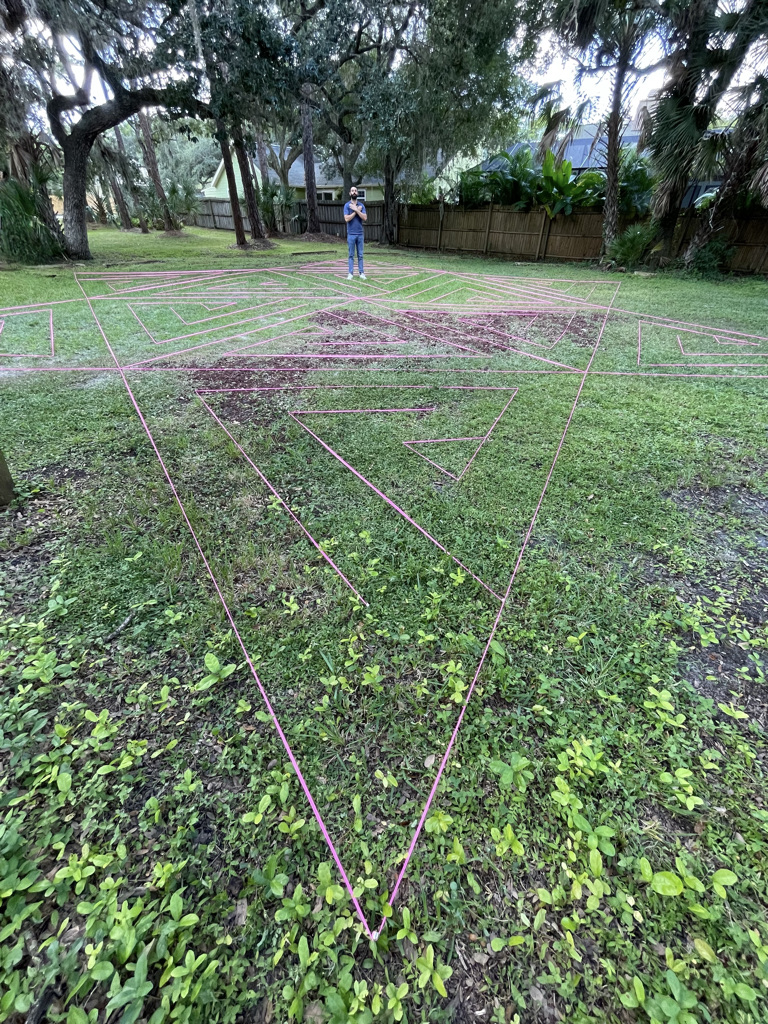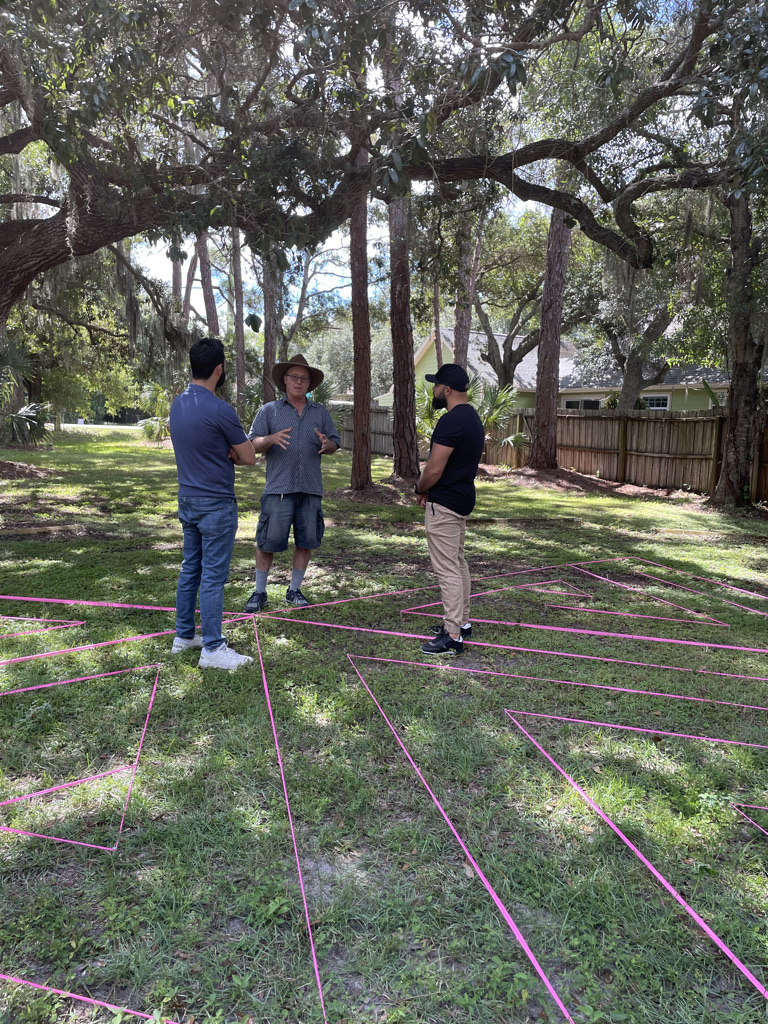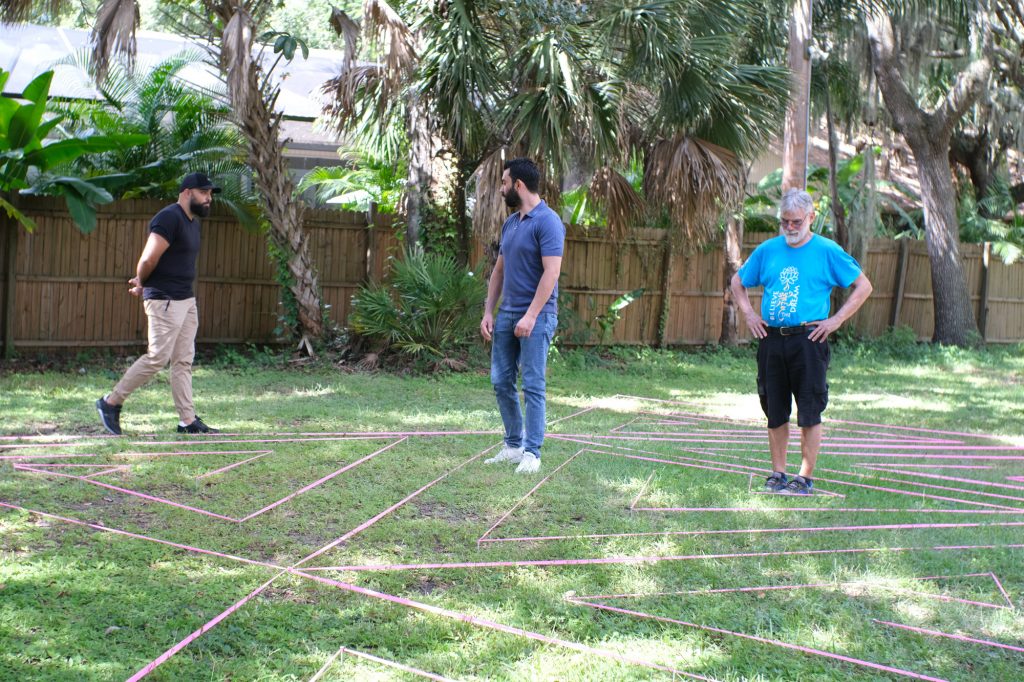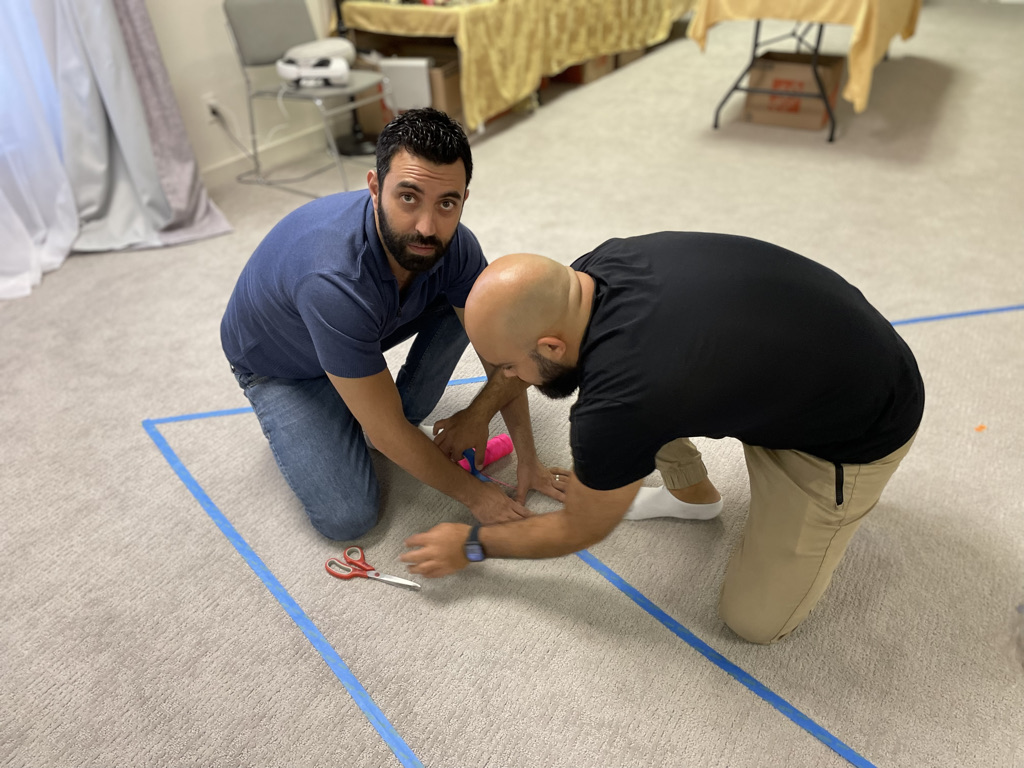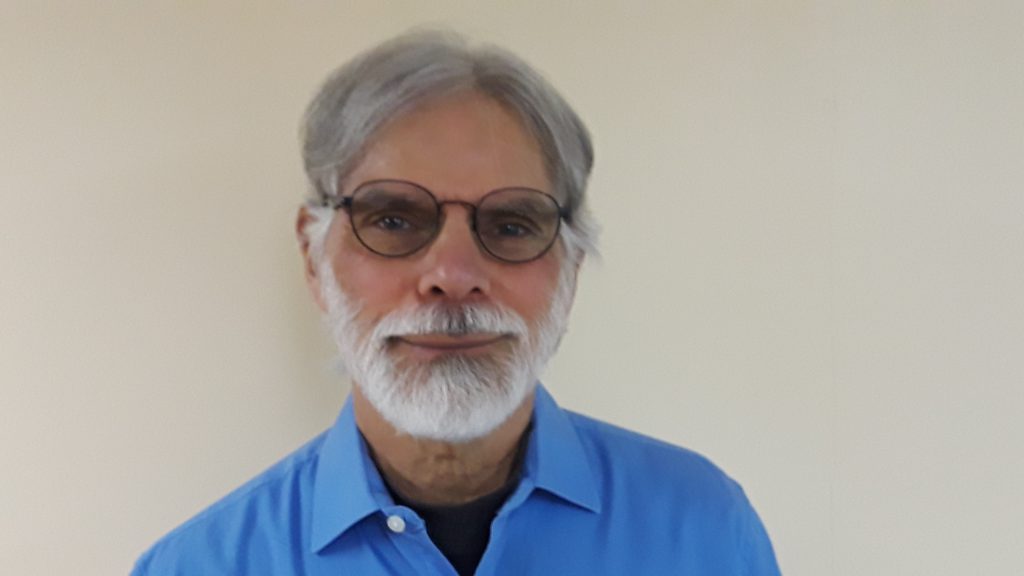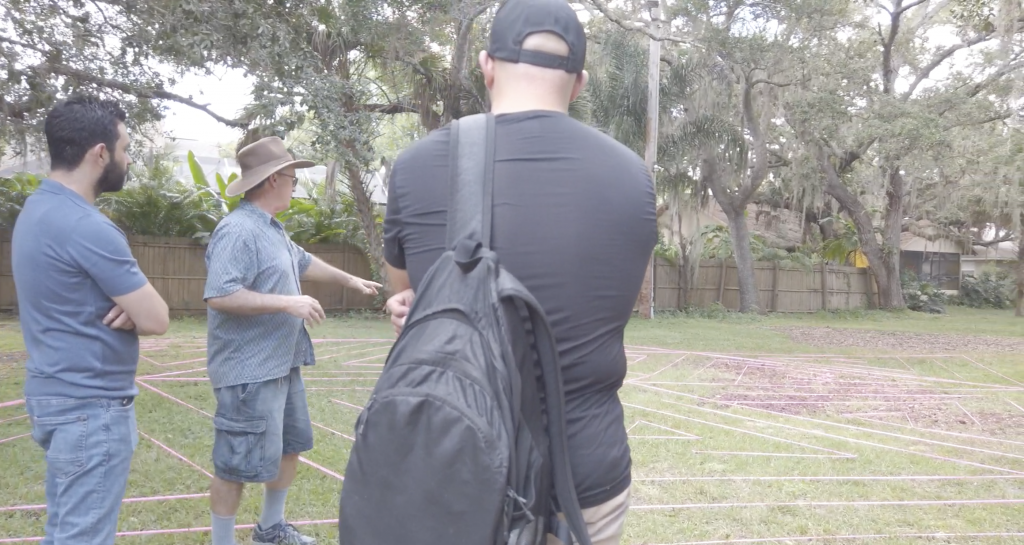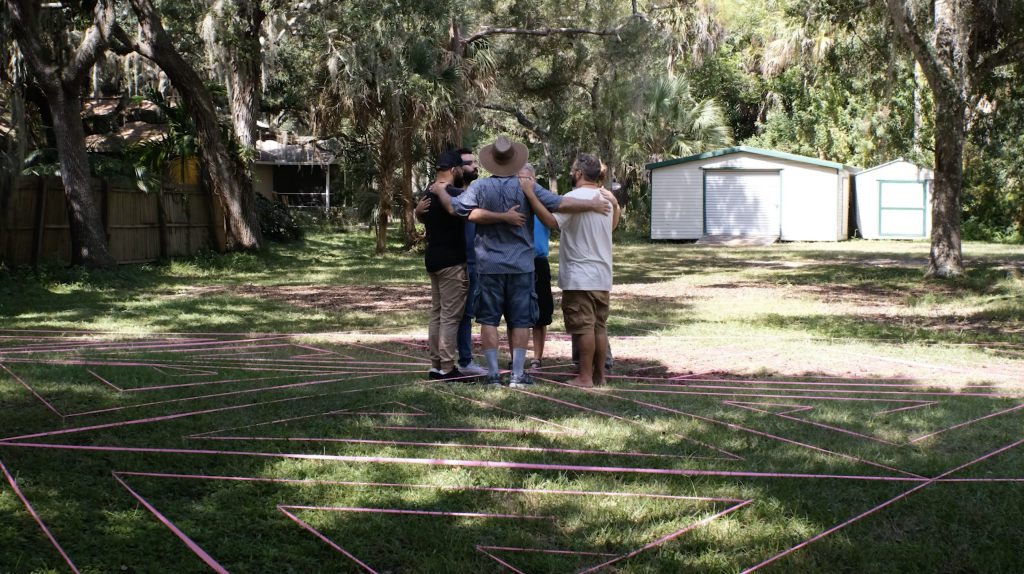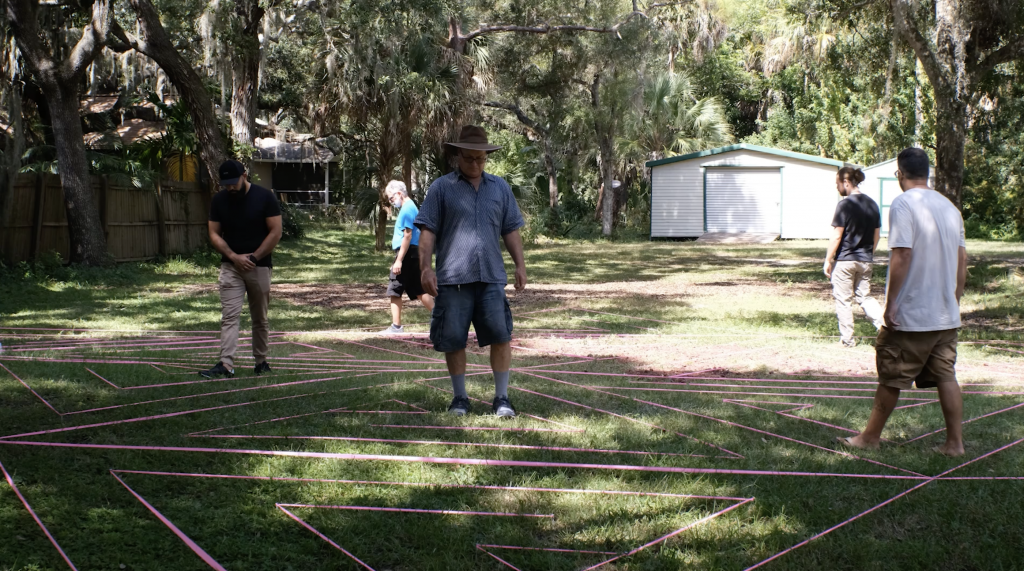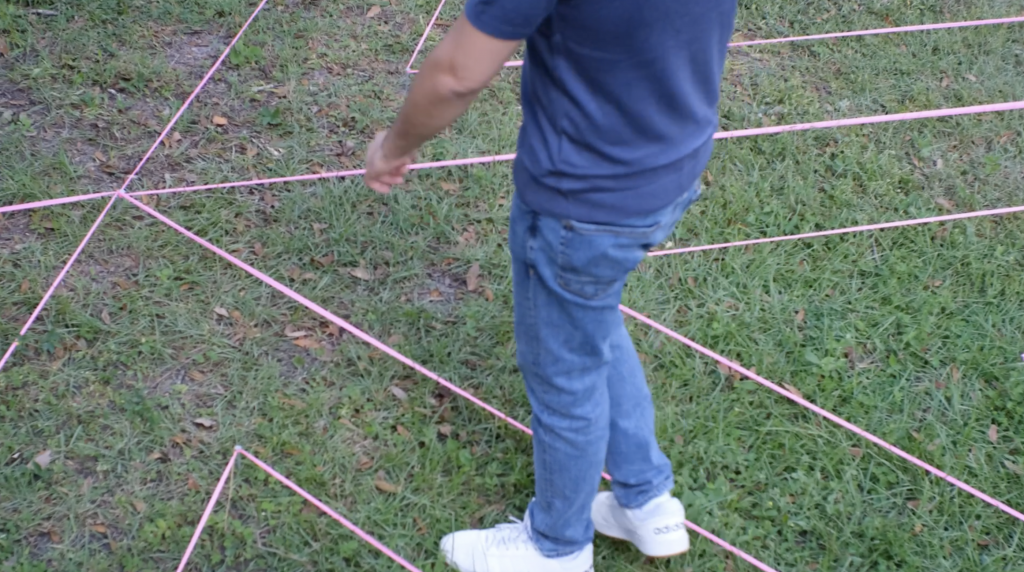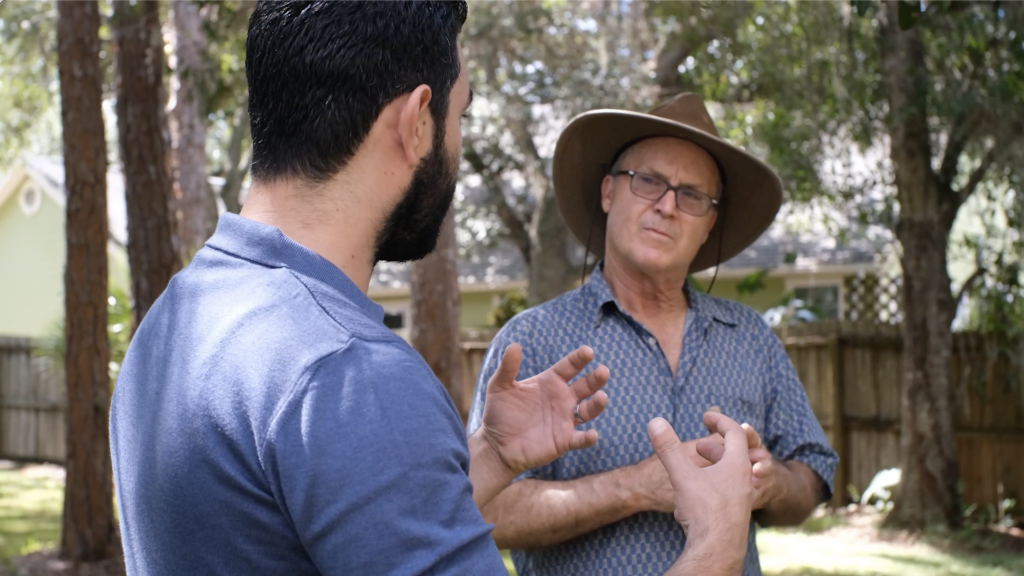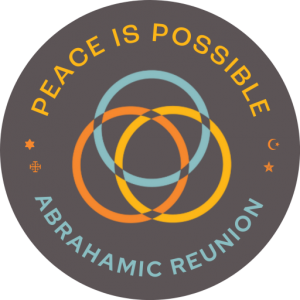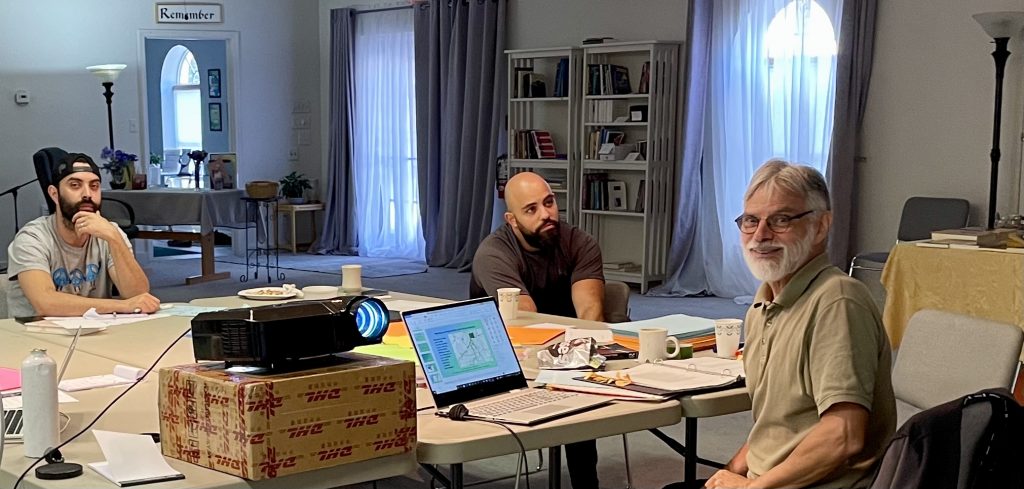
This past October, during the time AR’s Middle East staff, Abed Manasra and Mohamad Jamous, were in the United States, I was pleased to travel to Sarasota, Florida to meet them and gain a deeper understanding of their peacemaking work. It was my pleasure to facilitate a curriculum development workshop to train AR volunteer peacemakers and to participate in Peace Literacy Institute and Paths to Peace trainings.
The AR board and staff wanted to take advantage of the time that Abed and Mohamad were in the US and the time was well used. The Peace Literacy (VR) program has been reported on elsewhere on the AR website so I will speak to the other training activities.
Pablo Picasso once said, “Any form of art is a form of power; it has impact, it can affect change – it can not only move us, it makes us move.” This is the power of the Paths to Peace process which uses a labyrinthine design comprised of symbols that represent the Abrahamic faiths. The process creates a physical, psychological and spiritual sacred space and provides opportunity for dialogue to create deeper understanding and knowing of the other. In the training we created and walked the Paths to Peace labyrinth and all were moved by the experience. I will look forward to seeing the process used in the Holy Land and providing a new dimension to the work already being done.
The third staff development activity was a workshop to outline and deepen an evolving curriculum to train volunteer peacemakers. The goal is to prepare them to facilitate interfaith dialogue in their communities, and constructively model ways to deal with differences and conflict which are a natural part of life. Our workshop process included clarifying the skills and strategies volunteers will need and the activities which will prepare them to be peacemakers in their community.
I was profoundly impressed by the skills and knowledge Abed and Mohamad bring to the work of the Abrahamic Reunion and the varied approaches they have to transform fear, suspicion, and perhaps animosities into understanding, respect and even friendships. Though injustice, distrust and violence are constant challenges for peacemaking in Palestine and Israel, the work of Abed and Mohamad creates person to person, heart to heart connections that are growing and laying a foundation for a peace that can withstand and endure the challenge.
Ira Sirkar Harritt, AR Board member
Ira Sirkar Harritt served as the program coordinator of the Kansas City Office of
the American Friends Service Committee (AFSC), a Quaker peace and justice
organization, for over 30 years. In that capacity, he organized campaigns and
programs to promote peace, social and economic justice, nonviolent conflict
resolution, youth empowerment, and increased community connectedness and
understanding. He is an experienced workshop facilitator, organizer, mediator and
coalition builder. He especially enjoyed engaging and training youth to speak out on
issues of concern to them and in the use of the arts for social change.
